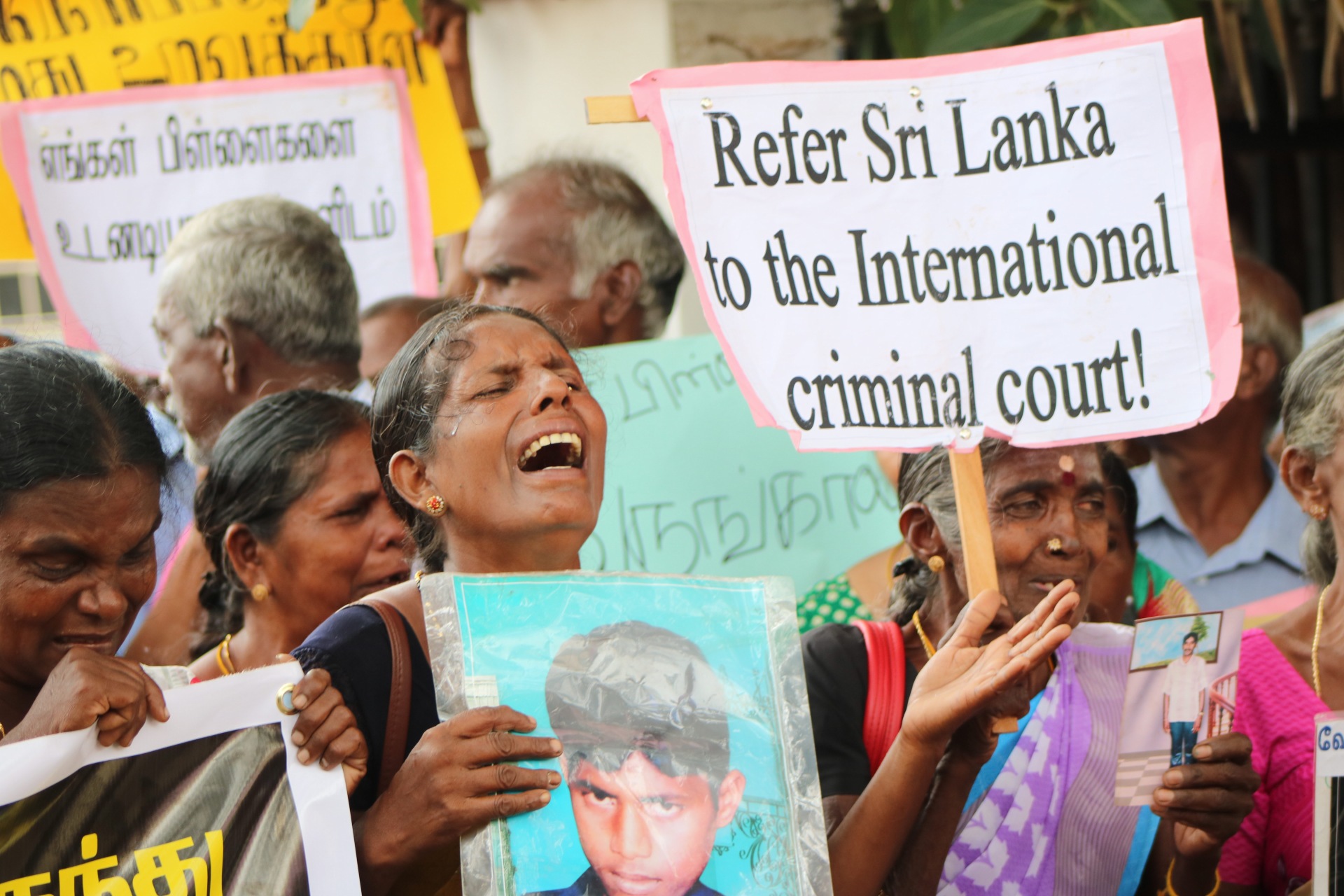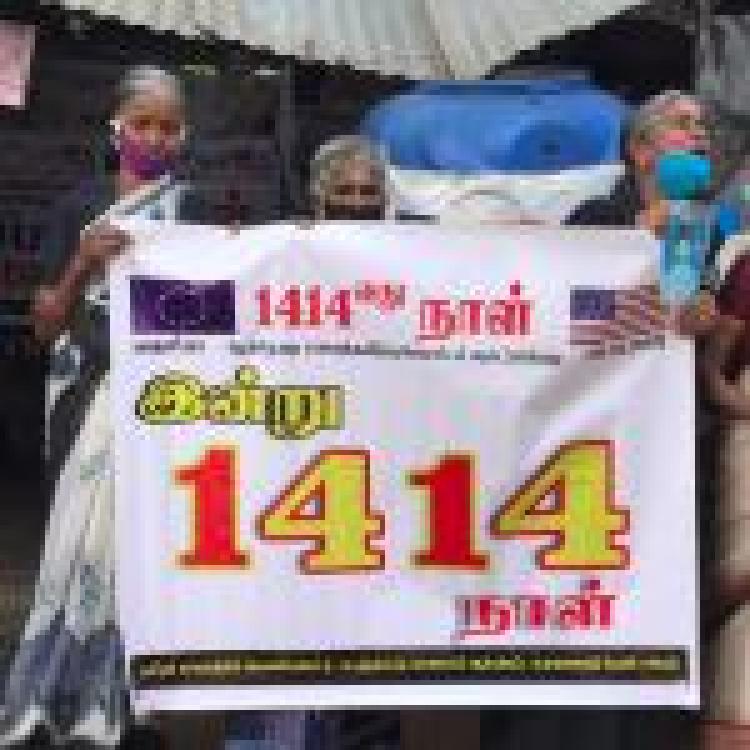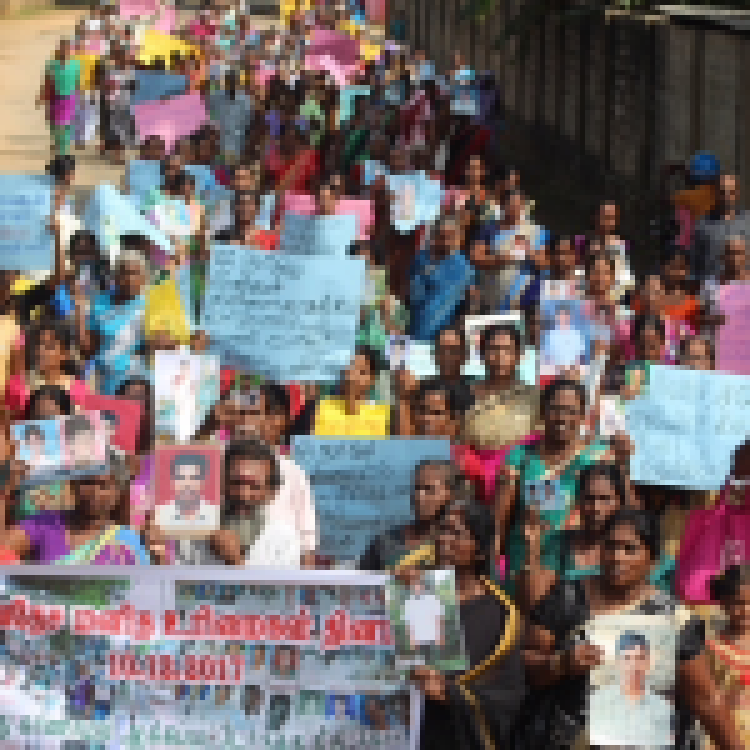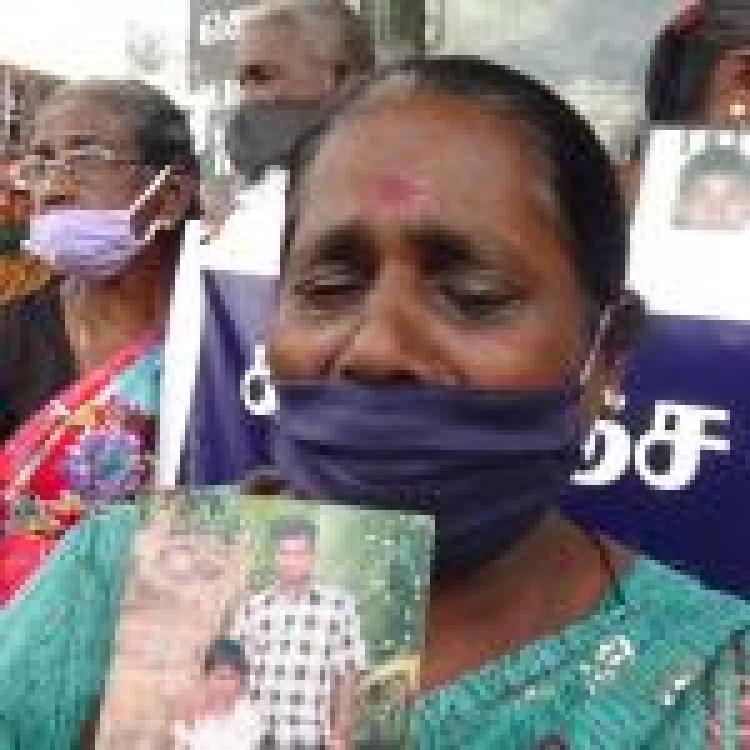The Association for Relatives of the Enforced Disappearances have written to Core-Group Ambassadors for Sri Lanka calling on the international community and UN refers the country to the International Criminal Court or establish a specifically created International Criminal Tribunal in advance of the 46th UN Human Rights Council (UNHRC) session in Geneva this March.
This demand has also been made this week in an unprecedented display of unity through a joint statement by major Tamil political leaders, Tamil civil society actors and Tamil victim community representatives.
Read more here: Tamil parties unite behind call for Sri Lanka to face international accountability
Time will only embolden abuses
They warn that giving Sri Lanka further time “time will not only entrench impunity, it will also embolden the Sri Lankan Government to intensify its abuses against Tamil people with its huge military presence in Tamil areas and its draconian laws”.
In their statement they highlight how a failure to deal with issues of accountability and find a permanent political solution have led to “repeated mass atrocities against Tamil people for over fifty years including in 1958, 1977, 1983 and 2009, amounting to war crimes, crimes against humanity and Genocide”.
Amongst the abuses listed in the letter was the slaughter of hundreds of thousands of Tamils as well as the sexual violence and rape inflicted against them by Sri Lanka’s security forces.
In 2015, then British Foreign Secretary, William Hague, noted these abuses and called for an independent international investigation into Sri Lankan war crimes if the Sri Lankan government failed to produce a credible and independent commission.
Pardoning war criminals
The letter also notes not only the failure of Sri Lanka to deliver on accountability but that since taking office, Gotabaya Rajapaksa has pardoned the only soldier who was ever punished and sentenced to death for killing civilians including children. He has further promoted accused war criminals to cabinet positions.
![]()
Sri Lanka’s former Human Rights Commissioner has admitted that Sri Lanka’s Human Rights Commission could no longer be considered independent following the establishment of an all-Sinhalese board to the Human Rights Commission in November under provisions of the recently passed 20th Amendment.
She told the Daily Mirror:
“Our track record, not just in relation to prison rights, but in relation to many human rights violations, is that we either have not inquired into violations or if we have inquired into them the reports have not been impartial and objective or the reports have not been released or if the reports have been released no action has been taken to hold those responsible accountable for the violations”.
Monitoring human rights
In addition to a call for referral to the ICC, the FOD have requested routine updates every 6 months on; “the plight of 90,000 Tamil war widows, any progress in finding the whereabouts of the thousands of disappeared Tamils including babies, situation of arbitrarily imprisoned Tamil political prisoners, land grabs under different pretexts, level of military presence and any activities on accountability for international crimes”.
They further call for action to be taken if there was no progress on the issues listed above.
Sri Lanka has the second-highest number of enforced disappearances in the world, with a backlog of between 60,000 and 100,000 disappearances since the late 1980s, according to last year’s report by the United Nations Working Group on Enforced or Involuntary Disappearances. Between 2005 and 2015, thousands of people, mostly ethnic Tamils, were forcibly disappeared in state custody when the current president was defence secretary and his brother, current Prime Minister Mahinda Rajapaksa, was president.
79 parents of the disappeared have died since the protests began without knowing the fate of their loved ones.
Requests
The letter concludes calling for the following three actions:
1) “Any new Resolution should not give time to Sri Lanka to implement accountability for International crimes and should be used to Refer Sri Lanka to the International Criminal Court (ICC) or to a specially created International Criminal Tribunal for Sri Lanka, for War Crimes, Crimes Against Humanity committed against Tamil people by the Sri Lankan State”.
2) “To prevent recurrence of mass atrocities against Tamils by the Sri Lankan Government, conduct an internationally organized and monitored Referendum to find a permanent political solution to the longstanding Tamil national question in Sri Lanka”.
3) “Get an update from the Office of the High-Commissioner for Human Rights every six months about the plight of 90,000 Tamil war widows, any progress in finding the whereabouts of the thousands of disappeared Tamils including babies, situation of arbitrarily imprisoned Tamil political prisoners, land grabs under different pretexts, level of military presence and any activities on accountability for international crimes. Take action if there is no progress on the above-mentioned issues”.
Signatories
The letter dated 14 January 2021 was co-signed by district leaders from the North-East.
Y.K. Kanagaranjini A. Leeladevi
President Secretary
Cosigned by District Leaders
T. Selvarani – Ampara District
A. Amalanayaki – Batticaloa District
C. Ilankothai – Jaffna District
K. Kokulavani – Kilinochchi District
M. Chandra – Mannar District
M. Easwari – Mullaitivu District
S. Davi – Trincomalee district
S. Saroyini – Vavuniya district
Read the full letter here.






